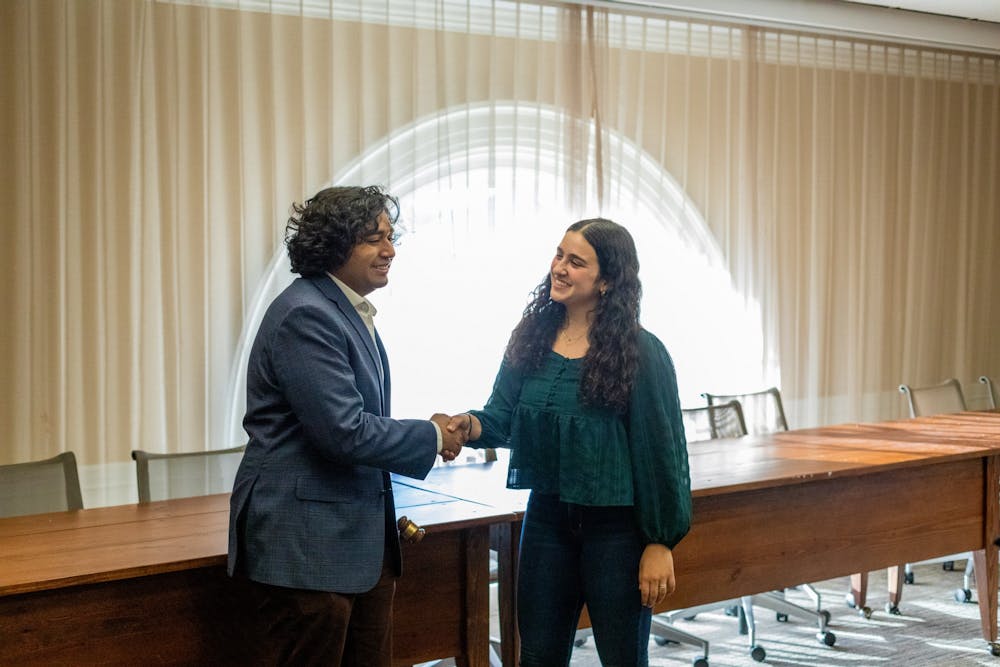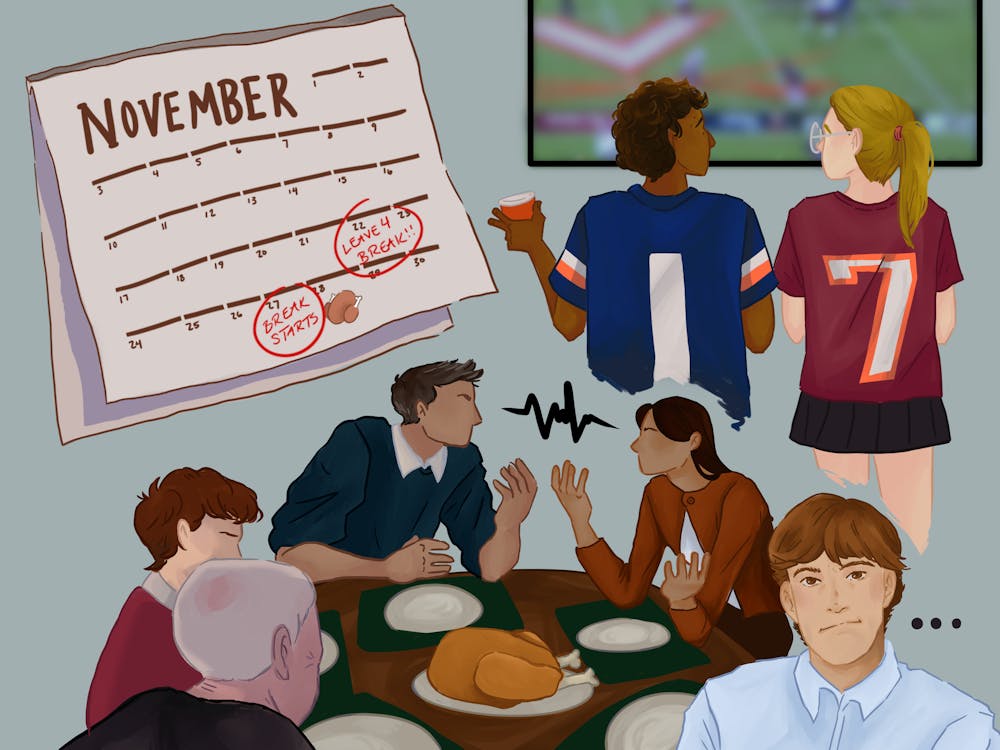Lisa Kopelnik, incoming chair of the University Judiciary Committee and second-year student, aims to increase transparency about internal affairs, build student understanding of the organization and improve diversity within UJC during her term.
After Kopelnik was reelected in the student body elections as a College representative, UJC voted Kopelnik into the position of chair during a closed, internal meeting March 26.
Kopelnik previously served as UJC’s First-Year Judiciary Committee Chair, a subgroup that adjudicates allegations of violations of the Standards of Conduct made against first-year students. She most recently worked as Vice Chair for Sanctions, a role on the Executive Board she started in last year in which she ensured students and organizations followed sanctions as well as supporting students throughout the process.
Kopelnik said she hopes to bolster trust between students and UJC during her term, as well as improving the student body’s understanding of UJC by expanding the role of educators — educators teach the University community about the Committee, the Standards of Conduct and handle recruitment.
“I want educators to be more involved in cases as a point of contact for students and organizations going through our cases so that they have some sort of support throughout the uncertainty of the UJC process,” Kopelnik said.
As UJC has recently taken action on multiple hazing reports from Contracted Independent Organizations, Kopelnik highlighted a need to continue building these relationships specifically with CIOs on Grounds. The UJC recently sanctioned Theta Tau Sorority, Delta Delta Delta Sorority, Club Gymnastics and the University Guide service for hazing violations.
Hazing received renewed attention in Virginia after the passage of Adam’s Law in 2022. The legislation is named after Adam Oakes, who died in February 2021 while pledging Delta Chi at Virginia Commonwealth University. The law implements a state-wide policy that requires Virginia universities to publicly report all hazing violations.
Kopelnik said that Adam’s Law does not change the overall Committee’s philosophy on hazing — they have and will continue to focus on holding groups accountable while also providing them an opportunity to reflect on their actions, Kopelnik said.
Kopelnik said that the Committee often encourages organizations to create their own presentations to deliver to their members in an effort to make student leaders think critically about hazing. She also noted that people are much more aware of hazing, and that there is more training around hazing prevention as a result of Adam’s Law.
"We’re thinking about [the training modules] while we’re sanctioning too, in the sense that we want to make sure that our sanctions are actually effective,” Kopelnik said. “We want [students] to dig deeper about what hazing means and how to prevent it.”
In addition to educating students, Kopelnik also said that she wants Contracted Independent Organizations to understand how to navigate the UJC process within their organization, noting that it is the Committee’s responsibility to meet with student leaders within organizations and explain how the Committee works. Kopelnik also hopes to host a public mock trial in Fall 2023 to demonstrate the Committee's deliberation process in action.
Another priority for Kopelnik during her time as chair is increasing diversity in the UJC, which she said begins this semester through planning recruitment efforts and restarting subcommittees so there are more ways for students to get involved in UJC. Through those efforts, she said she wants to make sure that the UJC is reflective of the broader University community.
Kopelnik said UJC has a unique way of creating restorative justice, and that the majority of committee members believe in the UJC’s mission.
“I think the UJC in many ways embodies student self-governance because we trust students to handle some of the most difficult questions, and also to come up with difficult solutions,” Kopelnik said. “I’m really excited about the next term because I’m hoping that we can preserve and continue that model of justice for many generations to come at this University.”
Kopelnik’s term began April 2 and will last a calendar year.





